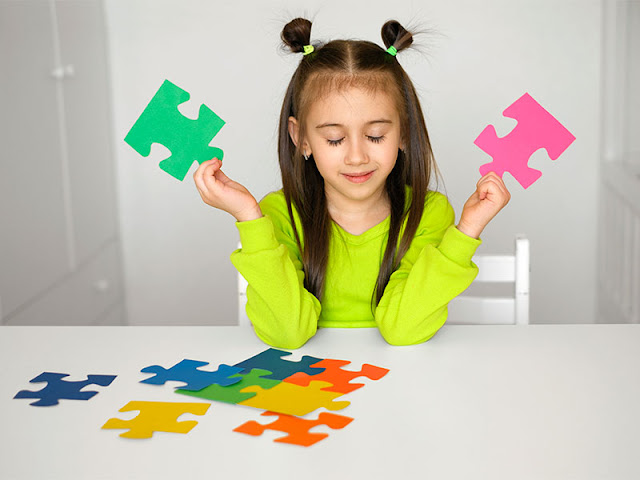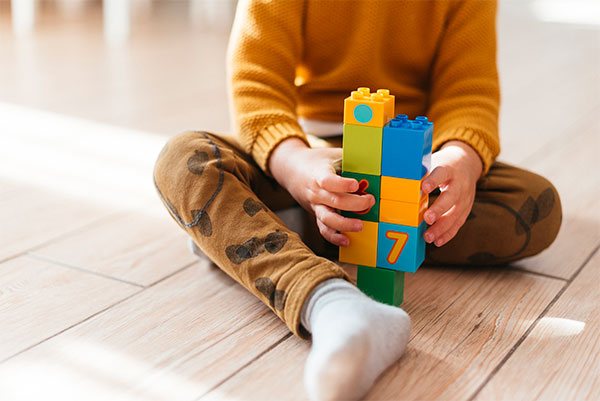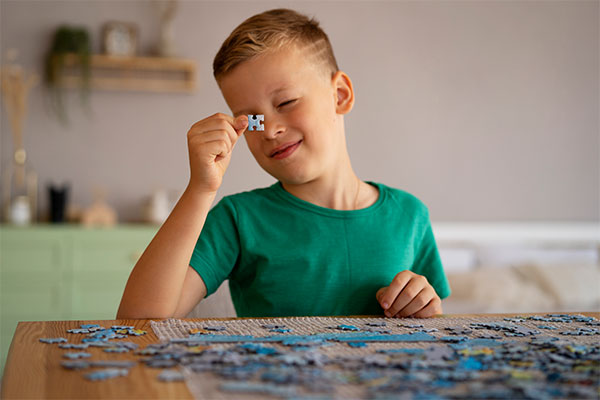In the ever-evolving landscape of children's education and development, the role of puzzles often takes center stage. Puzzles, with their seemingly simple pieces, hold the power to unlock a world of cognitive, emotional, and social benefits for kids. As parents, educators, and guardians, understanding the significance of incorporating puzzles into a child's routine is paramount. In this article, we delve into the multifaceted reasons why puzzles for kids are not just a source of entertainment but a crucial tool for holistic child development.
1. The Cognitive Benefits of Puzzles
- Enhanced Problem-Solving Skills:
Puzzles, by their very nature, present a challenge that requires problem-solving skills. As kids manipulate the pieces and figure out where each fits, they engage in critical thinking and develop an innate ability to analyze and solve problems. This skill set extends far beyond the puzzle table, becoming a valuable asset in academic and real-life scenarios.
- Cognitive Skills Development:
The act of completing a puzzle stimulates various cognitive functions, including memory, attention to detail, and spatial awareness. Children learn to recognize patterns, colors, and shapes, fostering a more profound understanding of their environment. These cognitive skills provide a solid foundation for academic success, especially in subjects like mathematics and science.
Visit: benefits of language development for kids
- Improved Concentration and Patience:
Solving a puzzle requires focused attention and patience. As children work through the challenges posed by different puzzles, they enhance their concentration levels and develop the ability to persevere in the face of difficulties. This newfound patience becomes a valuable life skill, aiding them in various aspects of their personal and academic journey.
- Critical Thinking and Logical Reasoning:
Puzzles inherently require logical reasoning, as children must analyze the relationships between different pieces and deduce the correct placement. This fosters critical thinking skills, teaching kids to approach challenges systematically and make informed decisions – skills that are applicable in academic endeavors and problem-solving scenarios throughout life.
2. The Emotional and Social Benefits of Puzzles
- Boosted Confidence and Self-Esteem:
Completing a puzzle, especially one that poses a moderate challenge, instills a sense of accomplishment in children. As they see the finished picture or solve a complex problem, their confidence and self-esteem receive a considerable boost. This newfound confidence transcends the puzzle realm, empowering them to tackle other challenges with resilience and self-assurance. Fuel your child's journey to success by embracing the transformative impact of puzzles – the building blocks of personality development, shaping confident, creative, and resilient individuals, this is enhanced in personality development for kids.
- Encouragement of Teamwork:
Puzzles often become a communal activity, especially in classroom settings or family environments. Collaborative puzzle-solving fosters a sense of teamwork and cooperation among children. They learn to communicate effectively, share ideas, and work together towards a common goal. These social skills are invaluable for navigating interpersonal relationships in various contexts.
- Stress Relief and Relaxation:
Engaging in puzzle-solving serves as a therapeutic activity for children. It provides a break from the hustle and bustle of daily life, offering a calming and stress-relieving experience. This aspect is particularly crucial in the modern era, where children are often exposed to various stressors. The meditative quality of puzzle-solving contributes to improved emotional well-being.
Visit: healthy lifestyle tips
3. The Role of Puzzles in Personality Development
- Enhanced Creativity:
Puzzles stimulate the creative faculties of a child's mind. From selecting and arranging pieces to envisioning the complete picture, children are engaged in a creative process that nurtures their imagination. This creativity extends beyond the puzzle table, influencing their approach to problem-solving and fostering innovative thinking.
- Development of Fine Motor Skills:
The physical act of manipulating puzzle pieces enhances fine motor skills in children. Precise movements, such as picking up, rotating, and fitting pieces together, contribute to the development of hand-eye coordination and dexterity. These motor skills are foundational for various activities, including writing, drawing, and other hands-on tasks.
Visit: challenges of fatherhood
Conclusion
In conclusion, the question "Why puzzles for kids?" unravels a world of benefits that extend far beyond the seemingly simple act of fitting pieces together. Puzzles emerge as powerful tools for cognitive development, boosting problem-solving skills, enhancing memory, and fostering improved concentration. They play a crucial role in emotional and social development, building confidence, encouraging teamwork, and providing stress relief.
As we advocate for the holistic development of children, the incorporation of puzzles into their routines becomes essential. Consider enrolling your child in personality development classes in delhi, where the transformative impact of puzzles is recognized and harnessed. These classes offer a structured approach to utilizing puzzles as a means to unlock your child's full potential, shaping them into confident, creative, and resilient individuals.
So, why puzzles for kids? The answer lies in the multifaceted benefits that contribute to their cognitive, emotional, and social well-being. Embrace the power of puzzles as the key to nurturing well-rounded individuals who are not only academically proficient but also confident, creative, and resilient, setting them on a path toward a successful and fulfilling future.



Comments
Post a Comment